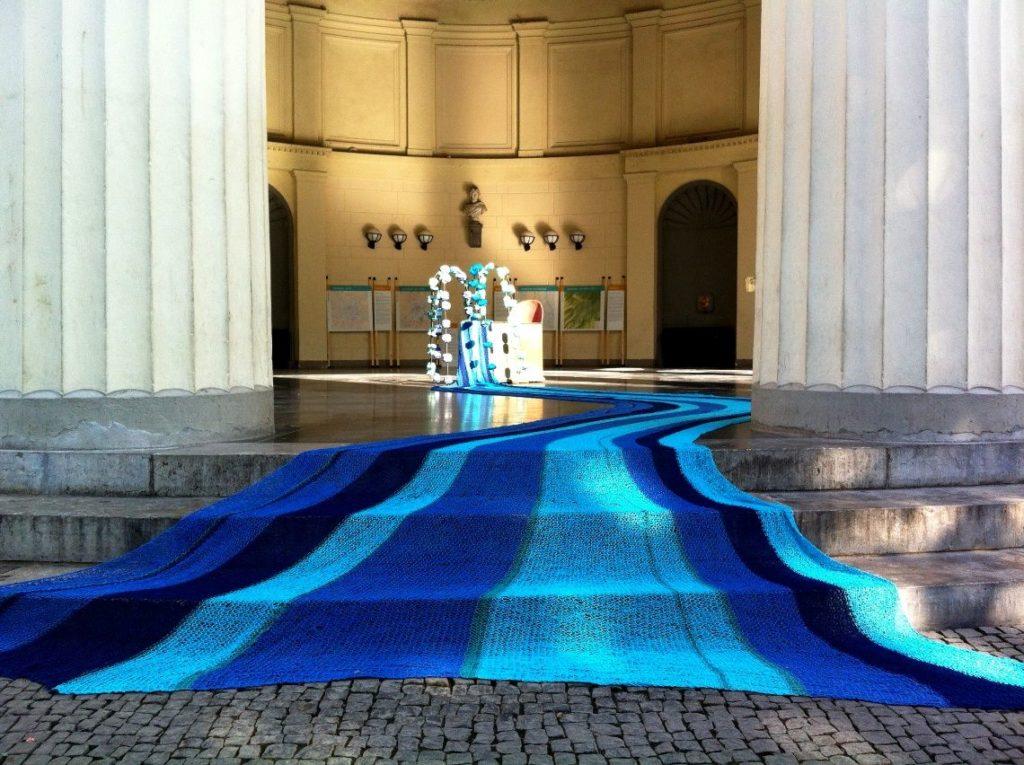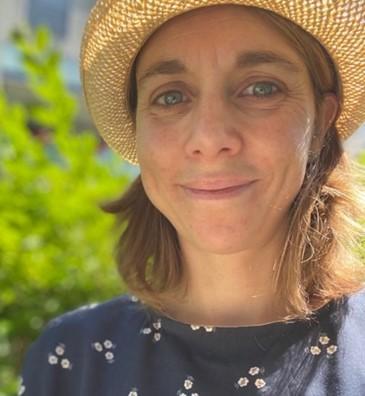Living and working abroad is a wonderful experience. Still, you might feel lonely, homesick, or a little frustrated at times. You might learn about expectations you did not even know you had and face challenges you did not even know existed.
In addition to the roadmap for arriving and settling in the Euregio Meuse-Rhine, these modules help you “onboard”, if you are new to Belgium, the Netherlands, or Germany, and also if you are native from the Euregio Meuse-Rhine and eager to explore new opportunities.
"Onboarding" in trains and busses
Using public transport is a great way to get accustomed to living in a new place, its people and habits. Find your options for being mobile without a car, using our maps, information on connections, tarifs and some tips & tricks to make this an accessible region.
Don`t worry if things seem complicated in the first place, you will get accustomed soon and what was once a bumpy ride becomes a laid-back journey.
Intercultural onboarding
Have you just arrived in the Euregio Meuse-Rhine? Or do you want to explore new parts of the place you already call home? Here is our free course that will guide you through intercultural challenges. It will poke you every now and then and help you get along in this diverse region. If you want to share your own experiences, you are very welcome to do so. Of course, you are also welcome to help others.
Have you just arrived in the Euregio Meuse-Rhine? Or do you want to explore new parts of the place you already call home?
We are working on a free course to guide you through intercultural challenges in Belgium, Germany, and the Netherlands. Texts could provide daily advice, tips & tricks, and background information similar to the first trial you find below, Feel invited to share your own stories, frustrations, misunderstandings, and hilarious moments.
Get on board
How many Belgiums?
Belgium has a very particular present – it is one of the states that gives large autonmy to its (language) communities, and the Walloon, Brussels and Flemish region // the French, Flemish and even German-speaking communities are very present in daily life.
Commonalities
Despite all federalisation reforms, a common Belgian framework still exists this framework exists. Especially for exploring your Euregio, note how much is shared in Belgium:
- The railway system to criss-cross the country with one tarif
- A common visa- and immigration policy
- One royal family (with family members famous for all language communities)
- A common past in breaking free from Spanish and Dutch foreign rulers
- A common past in foreign ruling on large territories in Africa with consequences up until today
- Catholicism has shaped all parts of the country and remains the predominant denomination
- A common system for taxes and social security – very important info for cross-border commuters.
Belgians share a lot of other aspects of life, the most visible of which are the fine cuisine and beer, but also: Football (with the “red devils”) as beloved and currently quite succesfull team. They share this access for national identification with most Germans.
Same colours but not quite the same
Both, Germany and Belgium share (nearly) the same national colours and friendly relationships. However, historic memory of the raids and invasive attacks from the German Empire and Fascist regime did not go unnoticed.
Comprehension, but not always undertanding
The Dutch standard language unites Flemish and Dutch people and forms a common heritage. In that way united from an outside perspective, note that stereotypically “aroggant Hollanders” have jokes about the stereotypical “stupid Belgian”. Some Flemish people found it quite “stupid” that Dutch rulers blocked their flourishing Antwerp harbour in order to benefit cities like Amsterdam, starting the Dutch “Golden Century” of world-wide free trade (17th century). To see both Flanders and the Netherlands mingle perfectly, visit the world’s most unique border puzzle in Baarle-Nassau / Baarle-Hertog. Another beautiful example is the euregional agglomeration of Maastricht, with people living and working in both parts of formerly shared Limburgian Duchy.
History lesson
Germany was a historic “latecomer” and united its very diverse duchys, principalities and kingdoms in one statehood as late as 1870. Protestant Prussia dominated and formed an increasingly unitary state.
After traumatic experiences with all power unified in the hand of one fascist “leader”, Germany is re-unified since 1990. Some neigbhouring states were initially afraid that nationalism would re-appear afterwards, but Germany shows itself as strongly commited to the European project.
Peculiar national identification
Germany has a very particular past – which is why some of the ways of how Germans feel about their nationality and country is different to the intuition of foreigners.
- Fascism, resulting in the second world war left a deep mark and is thematised very thoroughly in school. Among German adults there is broad consensus that everything close to making these crueltys appear harmless or insignificant is not acceptable.
- To many in Germany, it is important to learn one’s lesson from history. Many people in this country feel a strong imperative to forecome discrimination of ethnic or racial groups.
Self-identification
It is not that people in Germany do not feel a belonging to their country – but it does not always present itself very openly. Best chances to see German flags waving on the streets is with football championships:
- Football: Since hosting the world championship in 2006, football became the one legitimate occassion to showcase the black-red-gold flag in public. Still, the “miracle of Bern”, the first victory at the world championship in 1954, is vividly remembered, as it was the first positive event of national scale after the second world war.
- Regionalism: When people have trouble to fully identify with their country, it is usually not hard for them to identify with their regions. Note that this often is different from the (partially post-war) federal states. Region Aachen makes part of the Rhineland, a place with a still vivid dialect („Öcher“ (Aachen), „Kölsch“ (Cologne)). In carnival, you will feel how much musical heritage is shared in this region – and how much the texts focus on the Rhineland as a place of open-minded and warm-hearted people.
- Euregionalism: Historically, this place has been part of different countries, and dialects crossing state borders clearly indicate how much heritage is shared. Still, the Euregio is also a personal and political commitment aware of traumas from the past.
Far from Holland
The Kingdom of the Netherlands has 13 provinces – and only two of them are called Holland (Noord- and Zuid-Holland).
- Most of the provinces, in large parts, are indeed below the sea
level, and this “Poldermentaliteit” (necessity to work together as
everyone can be equally effected by a possible flood) has shaped a
working culture with flat hiearchies and open discussions. Find an eye-twinkering video (by Tim Traveller) to illustrate on how Dutch engineering has shaped the landscape in large parts of the country. - The Dutch nation has a
rich past in trading all over the world, harbouring and ruling in
places such as New York (originally New Amsterdam), South Africa and
Indonesia (including a quite painful colonial past). - Although the
Netherlands and Germany share a friendly relationship as political and
trading partners, World War II left painful remarks, including the
bomardement of Rotterdam, deportations and the infamous “Hongerwinter” - Different from the
federalist or dubble federalist states of Germany and Belgium, the
Netherlands are a quite unitary state with a strong central government.
The earlier mentioned provinces retain certain responsibilities – but
many aspects of life can be decided within agile municipalities
themselves.
Not below sea level
South Limburg is the only Dutch province with actual hills of more
than 200m, which actually attracts a lot of tourists from flat
“Holland”, see another eye-twinking video (by Tim Traveller) on this fact.
Unlike the cities of Holland, Limburgian cities had their cultural
blossom largely in the middle ages and the early 20th century. In a
time, when many northern cities became large hubs for the trade with the
Far East, cities like Maastricht were under the control of Liègian
rulers. Limburg came to the Netherlands as late as in 1830. Dutch
mentality has certainly shaped Limburg since then, but some
particularities remain.
Southern Dutch mentality
Explore life in Limburg (NL) with the new Manual by Expat Centre Maastricht Region. Two testimonials from internationals might illustrate how life in the Netherlands’ most southern part might be like:
- “Nothing beats sitting next to a cookie monster in the bus, on my
way to office on a carnaval morning. Event though I dont participate, it
is great to watch” (Quote by a Turkish student in Maastricht) - On the other hand, and despite the Limburgers being somewhat more
southern: “Don´t get struck by the extreme oddity when suggesting a
get-together with a Dutch person and finding them pulling out their
agenda (or fort he more modern folk, their smart-phones) to schedule a
date, even weeks ahead!“ (Greek student in Maastricht)


